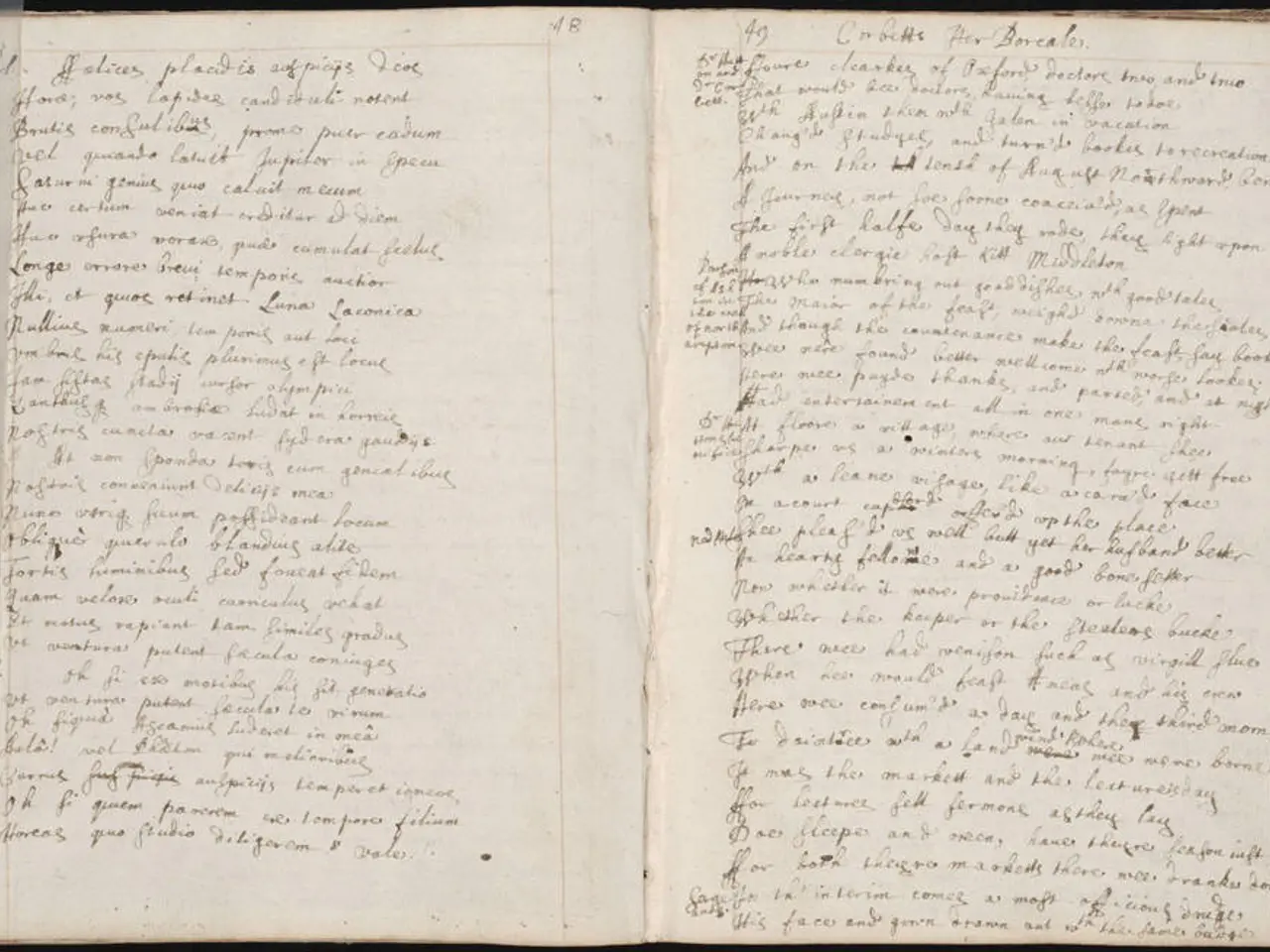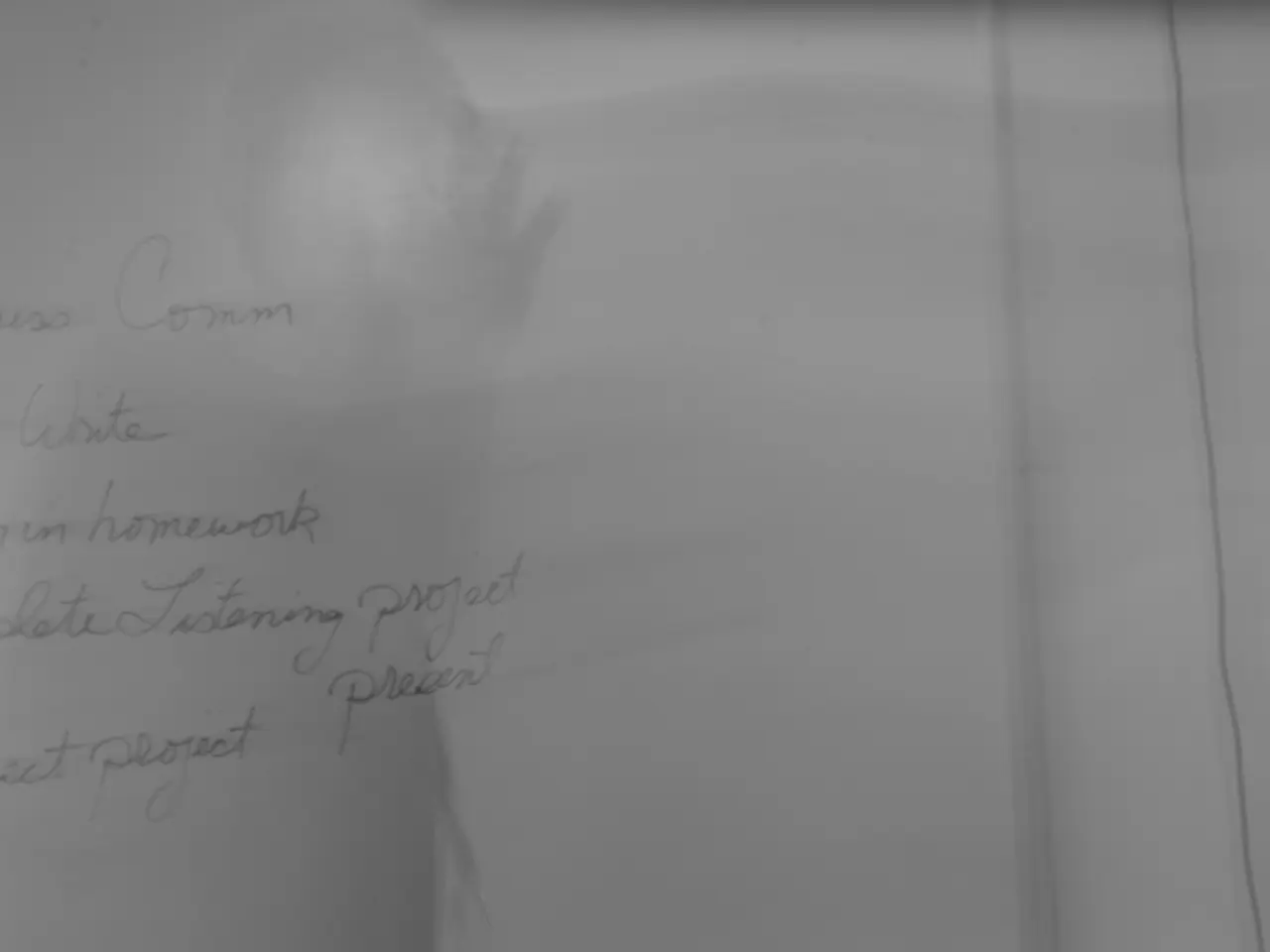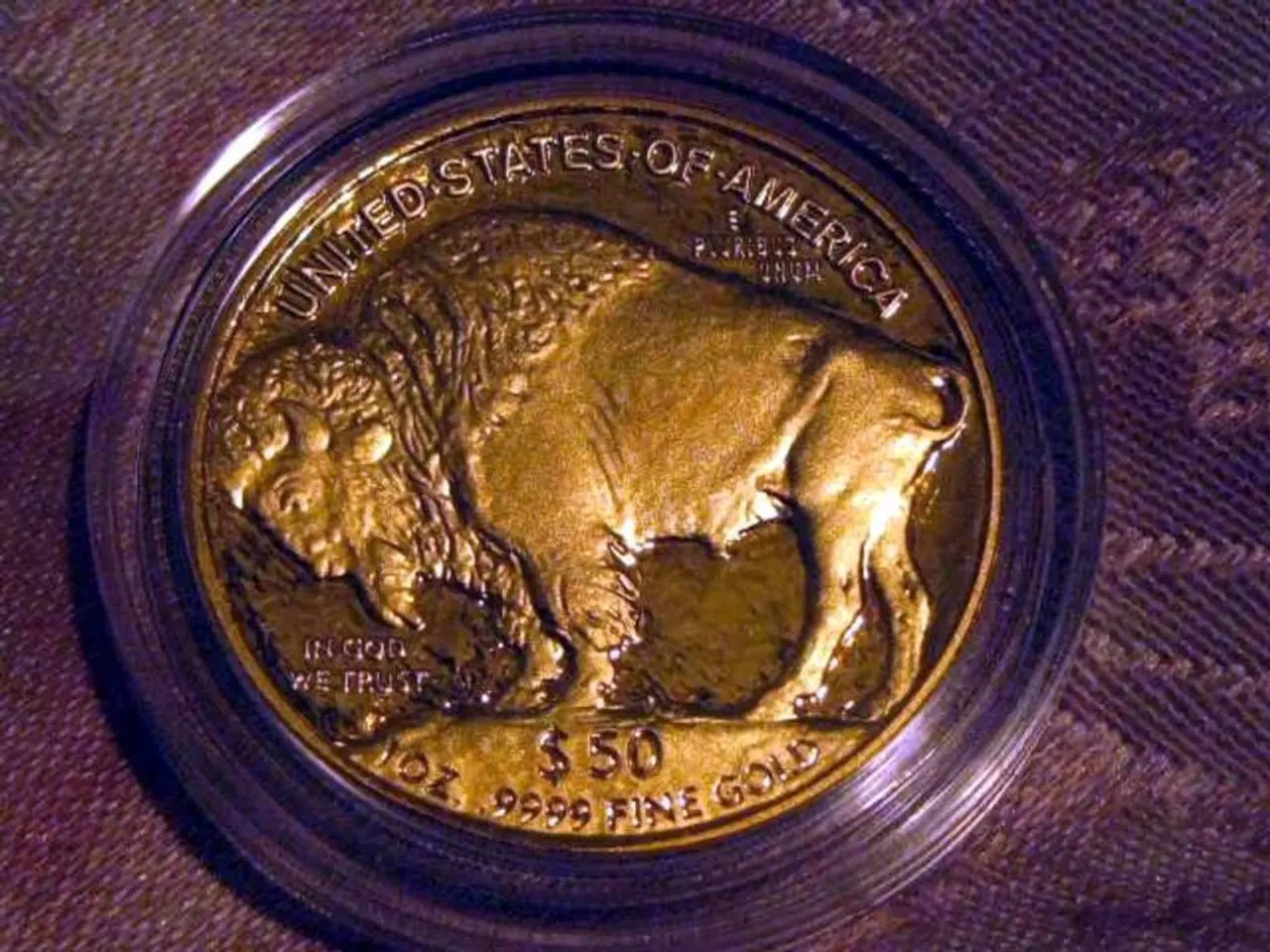Clash of Titans: Fred the Shred meets Adam Smith in a direct confrontation
In the heart of Edinburgh's Festival Theatre, James Graham's latest production, "Make It Happen," has been met with a mixed reception. While the play is praised for its ambition, strong performances, and theatrical flair, critics have highlighted significant flaws that detract from its overall impact, leading some to consider it a failure in fully realizing its dramatic potential.
A Magnetic Performance by Sandy Grierson
Sandy Grierson's portrayal of Fred Goodwin, the disgraced RBS CEO, is frequently described as magnetic and commanding. His powerful depiction anchors the play’s wild tonal shifts, successfully holding the audience's attention throughout.
Brian Cox's Ghostly Performance
Brian Cox's role as the ghost of Adam Smith received acclaim for its wit, humor, and intellectual sparring with Goodwin, providing a lively and engaging dynamic. However, some critics argue that Cox's character is used too sparingly to redeem the play.
Over-ambitious and Unfocused
Critics have labelled the play as over-ambitious and occasionally unfocused. The first half lingers excessively on repeated, simplified philosophy, failing to engage and resulting in a sluggish pace before the story gains momentum in the second half.
A Lack of Deep Moral Condemnation
The tone’s sparky humor and satire, while entertaining, are said to undercut the severity of the subject matter. As a result, the play tut-tuts at corporate wrongdoing rather than snarling at the injustice it caused. Goodwin's culpability and the catastrophic consequences of the financial crash are insufficiently explored.
Structural Weaknesses and Tonal Inconsistencies
Some reviewers argue that the production sometimes veers into surreal and heavy-handed musical elements that feel disconnected or superfluous, weakening the coherence and emotional connection of the narrative. The latter part slows down with an overly explanatory style and self-conscious theatrical devices, suggesting uncertainty in how to end the story satisfactorily.
A One-dimensional Portrayal of Fred Goodwin
The character of Goodwin, though engagingly played, is portrayed somewhat one-dimensionally as a mischievous figure rather than the full sociopathic architect of disaster, which dilutes the dramatic tension and accountability.
The Story Yet to Be Told
As the story of how Fred Goodwin and his associates led RBS to collapse has yet to be properly told, "Make It Happen" attempts to explore several key themes, including the rebirth of Scotland via devolution and the ascent of RBS to the world's biggest bank. However, these themes are treated sketchily, leaving the audience yearning for a more in-depth exploration.
In summary, "Make It Happen" is commended for its performances and daring theatricality but critiqued for structural weaknesses, tonal inconsistencies, and a failure to fully confront the injustice and gravity of the 2008 financial crash. Despite its ambitions, some critics label aspects of the production as disappointing or ultimately underwhelming.
Social justice advocates may call for a more critical response to "Make It Happen," as they argue that its tonal inconsistencies and superficial treatment of the 2008 financial crash detract from its potential to address the broader implications of corporate mismanagement and social irresponsibility, a concern that extends beyond general-news and politics to business finance. In the realm of finance and corporate accountability, "Make It Happen" falls short of providing a comprehensive, dramatic exploration of Fred Goodwin's role in the RBS collapse, raising questions about its ability to generate a meaningful impact on public perception.




